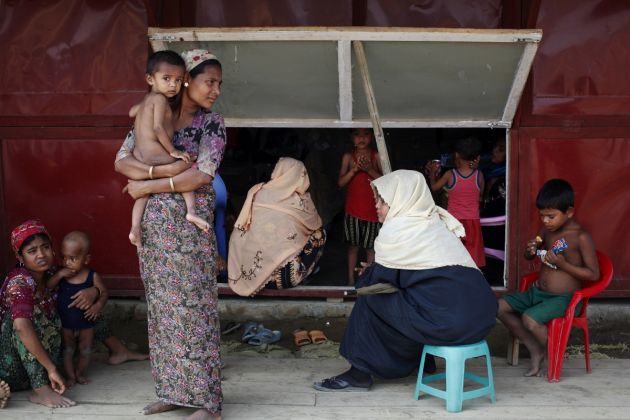Myanmar woman who said she was raped, sparking sectarian violence, said to have lied

The woman who said she was raped, sparking conflict between Buddhists and Muslims in Myanmar's second-largest city earlier this month, has confessed she made up the story, State media has quoted a government department as saying.
Quoting the Ministry of Home Affairs, the government daily New Light of Myanmar newspaper reported the Buddhist woman was paid to make false claims against two Muslim brothers.
"After a detailed investigation she confessed that she accused the two men because she was paid" to do so, the report said.
The woman has been arrested alongside one of the people alleged to have paid her, the report said.
The July 1 incident in Mandalay triggered deadly clashes between Buddhists and Muslims that lasted several days.
The fighting claimed two lives with scores injured and was followed by the imposition of a curfew and tight security in the area.
A Buddhist and a Muslim were killed in the riots, as social media reports swirled online detailing the incident where two Muslim men purportedly raped a Buddhist employee at their teashop.
The ministry identified the woman as Phyu Phyu Min, and said she was made to undergo a medical examination to back her claims of being sexually assaulted.
But when the examination was through, doctors could not find any sign of rape or other similar acts of violence against her.
Later on, the woman confessed the State newspaper said.
Those who paid her were reported to have had a dispute with the owners of the teashop where the woman worked.
The conflict once again highlighted the testy relationship between Myanmar's Buddhist majority and its Muslim minority.
Clashes between the groups have left at least 250 dead and thousands displaced since the fighting began in Myanmar's Rakhine state two years ago. Most of the dead are Muslims.
The outbreak of violence in Mandalay was the first of its kind.
Clashes between Muslims and Buddhist have often broken out after rumors or individual criminal acts were known.
Sometimes fanning the flames of outrage are ultra-nationalist Buddhist monks.
